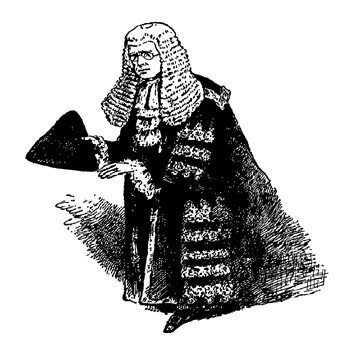I spend the bulk of my time reading, writing and editing contracts. And, of course, negotiating them on behalf of my clients, which generally involves, literally at the end of the day, more of the foregoing. What I see when I look at the efforts of most lawyers (including myself in days gone by) is pathetic. Words churned out like catechisms, without much effort to understand what they mean, whether they are intelligible, or whether they inform the parties to the contract (one of whom, by definition, is the lawyer's client) exactly what the thing is about. I often get the impression that the turgidity of contract writing is a deliberate ploy to require the client to return to the lawyer to tell the client later what it was (s)he agreed to, since just reading it was not sufficiently informative. It's like looking at a note you wrote yourself years ago, and discovering you can't read your own handwriting.
So over the last decade or so, I've become a pilgrim in search of those few people in this profession who have applied deep thought to the process of contract drafting, and how to make sure that the documents (1) say what they're supposed to say--that is, what the parties intended their deal to be--and (2) can be understood by the parties and others with an interest after the signatures are on the page. One should not underestimate the importance of the latter. Most disputes over contracts arise because the language of the contract was ambiguous, leaving lots of wiggle room when one party wants out and the other one doesn't. Sometimes, lawyers deliberately draft language that way, but doing so is a disservice to the client, who, if (s)he had known what was afoot, could have legitimately negotiated for a better deal before signing. And by letting ambiguous language from the other side through, the opposing lawyer does a deep disservice to the counterparty client, which in my view borders on malpractice.
So I think it behooves every transactional lawyer to understand how to draft clear contracts, and to insist that every contract (s)he drafts for a client state exactly what the parties mean it to say (or at least what the lawyer's client means it to say) in a way that all the parties can understand.
Of the people toiling in this vineyard, I think the most heroic champion of proper drafting is Kenneth Adams, whose A Manual of Style for Contract Drafting, now in its third edition, is the gold standard in the field. I have followed Ken's career with great interest, to quote Senator Palpatine, and I have occasionally contributed an impertinence or two on his blog, to which I have provided a link on my links page.
What brings all this up is a recent project reviewing contracts on behalf of a software company. It is a comonplace of our contracts that in one place or another they refer, whether in granting a license, transferring IP between entities (for example in a professional services engagement), or in business combinations where IP is one category of asset, to "all right, title and interest in and to" something. On closer examination, this little bundle of verbal joy consists of two phrases, each of which contains redundancy. The first of these, "right, title and interest," can easily be replaced by "right" or "rights," since the other two words are just subsets of it. The other can be more problematic, not because the couplet "in and to" isn't redundant, but because it's sometimes difficult to determine which of these prepositions is the right one to use. To be really picky about it, one can have rights in something or to something. The sense I get is that one has rights to tangible, concrete things, like widgets, and rights in intangibles like intellectual property. Anyone wishing to add observations to those is welcome to exercise his or her right in free speech by entering a comment below.

"Ah, my lords, it is indeed painful to have to sit upon a woolsack which is stuffed with such thorns as these" --W.S.Gilbert, Iolanthe
Yes indeed. The point is that it really doesn't matter, matter, matter, does it? The inability to make up one's mind may be what lies behind the rolling tumbleweeds of words (to bring this back to America) with which the flow of ideas in a contract is choked. A proper regard for the intelligence and patience of our readers, namely our clients and their counterparties, requires that we, the lawyers drafting agreements, keep the gobbledygook (that's a technical term) to a minimum. For that reason, the seven words "right, title and interest in and to" will henceforth, in contracts I draft--and as best I can manage, in the ones I edit--be reduced to the two words "rights in" for IP and "rights to" for, you know, stuff.